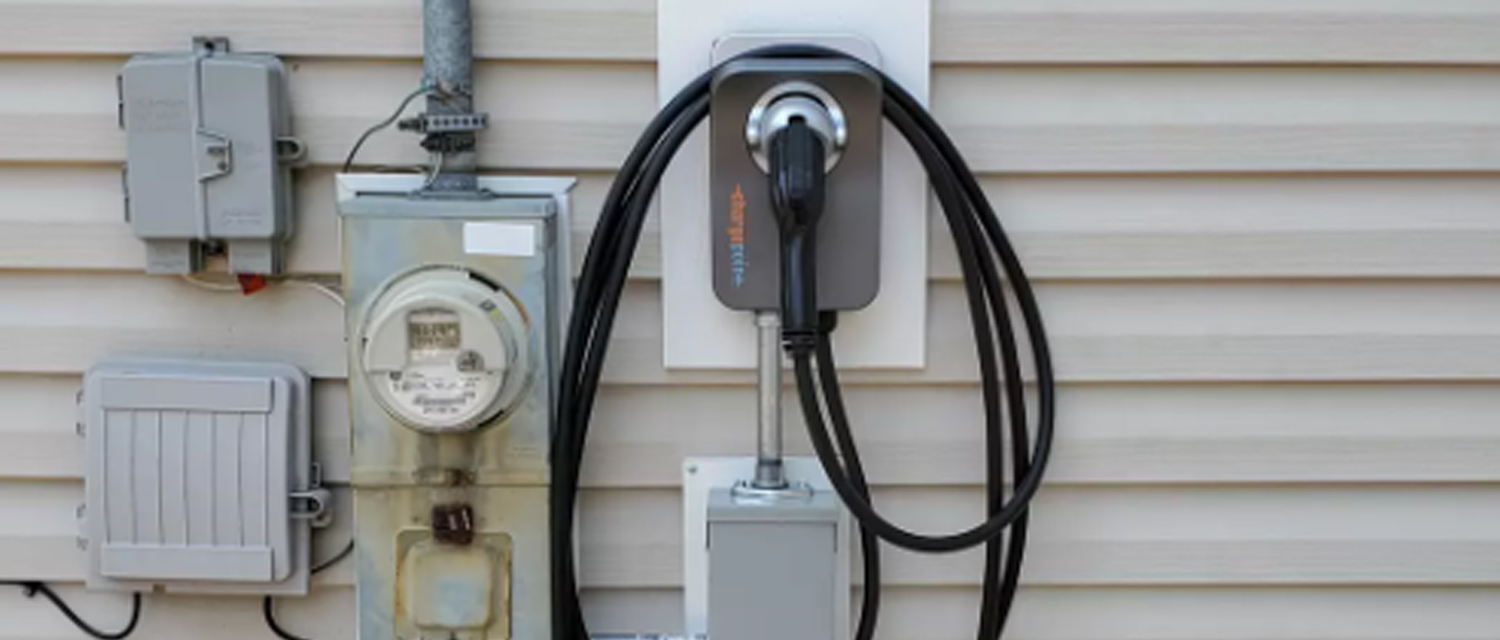Get free quotes within minutes
Safety Tips For Electrical Emergency
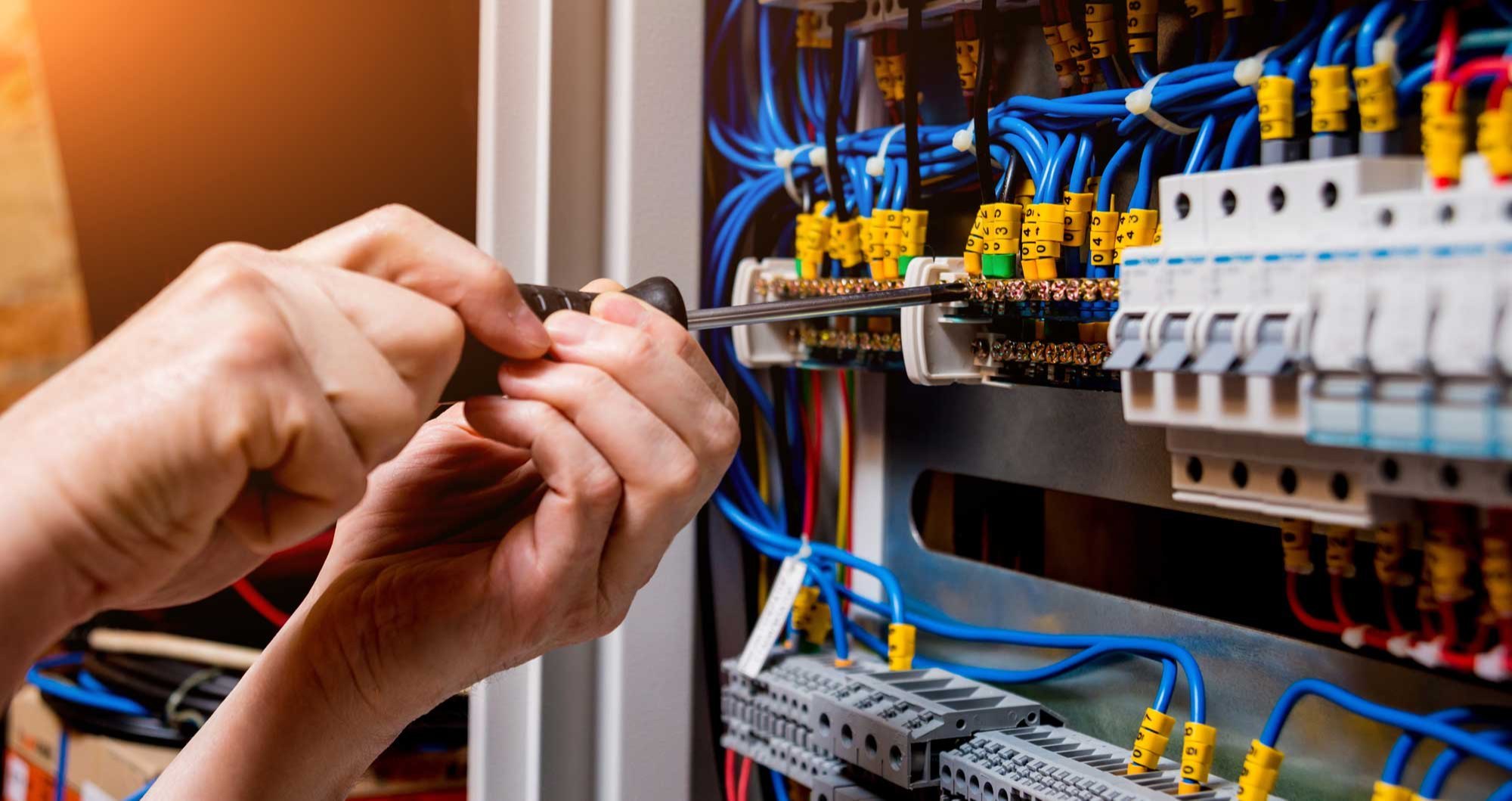
Essential Electrical Safety Tips for Australians: How to Handle Emergencies Effectively
Electrical safety is crucial to avoid hazards in electrical appliances, wiring, powerpoints, and switchboards. Avoiding signs of electrical issues and safety guidelines can create electrical emergencies. Sometimes electrical emergencies can also occur by accidents and pose potential risks to property and life. You must be ready to handle emergencies effectively. This guide will help you with common signs of electrical issues, immediate actions, essential safety precautions, specific electrical emergencies and how to handle them effectively.
Recognising Electrical Emergencies
You can easily recognise electrical emergencies. You must be careful when recognising electrical emergencies.
Common Signs of Electrical Issues
You can not avoid the following common signs. These are signs of electrical issues. You must remember avoiding them can lead to electrical emergencies.
- Flickering or dimming lights: The lights in the room and indicators on the electrical boards flicker and dim frequently when there are electrical issues or low voltage.
- Unusual buzzing or humming sounds: You can hear unusual buzzing or humming sounds from electrical boards and wirings. The sound usually comes from unintended sparks within wires.
- Burning smells or visible scorch marks near outlets: Electrical issues spread burning smells or show visible scorch marks near outlets. You can check the fuse in the electricity boards.
- Frequent tripping of circuit breakers: You can find that the miniature circuit breakers, GFCIs or surge protectors are tripping frequently. These are clear signs of electrical issues.
- Electric shocks from appliances or outlets: Electric shocks from appliances, outlets or wires indicate electrical issues. You can also see sparks from these electrical things.
Immediate Actions During an Electrical Emergency
Remember the following actions to handle electrical emergencies effectively and safely.
- Stay Calm: Panic can lead to poor decisions. You must take the situation seriously and handle it carefully.
- Turn Off the Power: You must check and turn off the main power switch. You can use the miniature circuit breaker(MCB) installed near the electric meter to cut the connection.
- Avoid Water: Never use water to control electrical fires. Do not touch faulty electrical equipment with wet hands or standing in water.
- Evacuate if Necessary: You must recognise the fire or significant risk, evacuate the area and call emergency services. Inform kids, pets, and family members to leave the house immediately to handle such situations effectively.
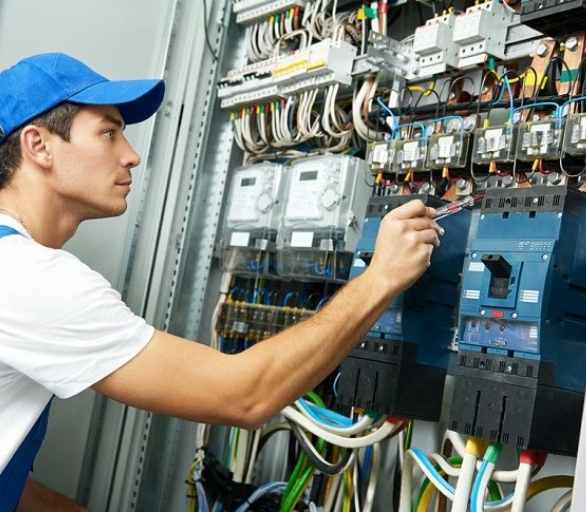
Specific Emergency Scenarios, Reasons and Safety Tips For Homeowners
Electrical fire, shock, power outage and downed power lines are dangerous electrical emergencies. You can be calm and follow our tips to handle these dangerous situations safely. Always prioritise safety in any electrical emergencies.
Electrical Fire
Common reasons for electrical fires include overloaded circuits, faulty wiring, and the use of outdated or damaged electrical equipment. Overloading circuits can cause excessive heat buildup, which can ignite surrounding materials. Faulty wiring, often resulting from poor installation or wear and tear over time, can create dangerous sparks. Using damaged or outdated electrical appliances and cords can also lead to fires, as they are below current safety standards or may have exposed wires. Your top actions for safety should be the following.
- Do Not Use Water: Never use water to control electrical fires. Water can conduct electricity and worsen the situation. It can spread the fire instead of extinguishing it.
- Use a Fire Extinguisher: A Class C fire extinguisher is recommended to control the electrical fire. It is a red cylinder filled with chemicals required to extinguish the fire.
- Evacuate and Call 000: If the fire is uncontrollable, evacuate and call the fire department.
Electric Shock
Direct contact with live electrical wires, using electrical equipment with frayed cords, or operating appliances in wet conditions are common reasons for electric shocks. Poorly maintained electrical systems, including faulty grounding or lack of proper insulation, increase the risk of shock. Additionally, mishandling electrical devices and ignoring safety protocols can lead to accidental electric shocks, which can cause severe injuries or even be fatal. Your top actions for safety should be the following.
- Do Not Touch the Victim: You should not touch the victim with anything that can flow electricity. You can use insulated bars or tools to disconnect the power source.
- Call for Help: Call neighbours, family members and emergency services for quick help. You must react quickly to save the victim.
- Perform CPR if Necessary: Only a trained person should perform CPR. If the victim is unresponsive and not breathing, CPR may be necessary.

Power Outage
Severe weather conditions, equipment failure, and human error are the reasons for power outages. Natural disasters like storms, hurricanes, and heavy snow can damage power lines and substations, disrupting the electricity supply. Equipment failure due to aging infrastructure or manufacturing defects can also lead to outages. Furthermore, human errors, such as accidents involving power lines or issues during maintenance work, can result in unexpected power cuts. Your top actions for safety should be the following.
- Check for Causes: You must check the cause of the power outage. This may be due to a tripped circuit breaker, a fuse blown, a power line issue, or a problem with the electrical panel.
- Use Generators Safely: You can start the backup generator in a power outage. You must check the connection is safe.
- Unplug Appliances: Many power outages are due to electrical fires, fallen main wires or sparks. You should immediately unplug appliances in such conditions to save them from sudden high-voltage surges and accidents.
Downed Power Lines
Downed power lines are often a result of extreme weather conditions, accidents, or natural events like falling trees. Severe storms, high winds, and ice accumulation can bring down power lines, creating dangerous situations. Vehicle accidents that involve utility poles can also cause power lines to fall. Additionally, earthquakes or other geological events can damage infrastructure, leading to downed lines. Your top actions for safety should be the following.
- Stay Away: If there is an electrical emergency due to downed power lines, you must maintain a safe distance and keep others away.
- Call Authorities: You should not be near downed power lines, the dangers can exceed. You must report the downed line to emergency services or call a locally trained electrician.
- Do Not Touch Anything: Put a barrier or warning board around the downed power lines. Avoid touching objects or water in contact with the downed line.
Preventive Measures For Saving Your Electrical Wirings And Appliances
Regular Inspections
You should schedule annual electrical inspections by a licensed electrician. You must replace outdated or damaged wiring and components. It is important to address damaged extension cords as ensuring their safety helps you prevent fire hazards, electrocution risk and property damage.
Install Safety Devices
- Smoke Detectors: Install and regularly test smoke detectors. It will notify electrical fires.
- Surge Protectors: Use surge protectors to safeguard appliances. This disconnects the electricity supply during sudden voltage surges.
- Ground Fault Circuit Interrupters (GFCIs): You can install GFCIs to detect moisture and disconnect the supply when electricity can spread to the earth's surface due to earthing.
Educate Your Household
You must teach family members about electrical safety. They should know the MCB position, the main power-off switch and how to turn off the power supply. They should operate electrical appliances and devices properly. Your family should know the signs of electrical issues and faults in wiring and appliances.
Hiring a Professional Electrician
Most electrical problems require a certified electrician. Certainly, you should hire professional electricians for electrical emergencies. Let us understand different things related to hiring professional electricians.
Why Hire a Professional?
- Safety: Professional electricians are trained to handle all electrical emergencies. They ensure compliance with safety standards during electrical installation, repair and replacement.
- Expertise: Licensed electricians have the necessary skills and knowledge to operate in various electrical environments. They have original tools and expertise to use them in different electrical emergencies.
- Peace of Mind: Professional electricians are known for proper inspections, repairs, replacements and installations. This reduces future risks.
- Specialised Installations: A licensed electrician can also handle specialised tasks, such as installing energy-efficient lighting, smart home systems, or acting as an EV charger installer to safely set up your electric vehicle charging station at home.
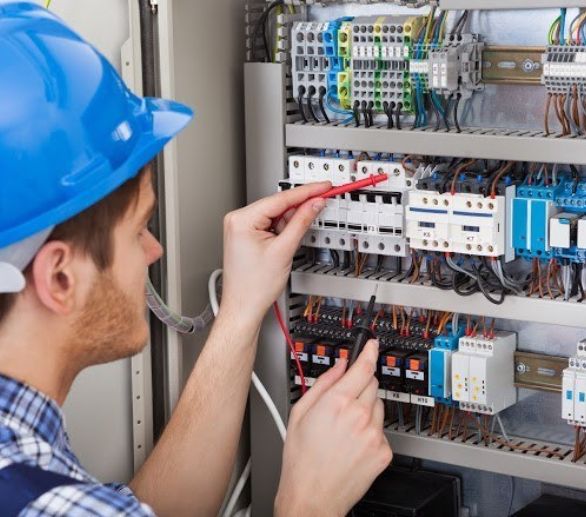
Finding the Right Electrician
- Research and Reviews: Look for local licensed electricians with positive reviews and ratings from many customers. You must check the top 5 results of your “electricians near me” search.
- Get Multiple Quotes: You can prepare a list of reliable local electricians and ask for quotes from them. You can also use service marketplaces to get FREE quotes from local experts based on your electrical requirements. You can compare services and prices from quotes.
- Verify Credentials: You can verify essential credentials like ABN, service hours, licence and insurance.
Questions to Ask Potential Electricians
- What is your experience with electrical issues like mine?
- Can you provide references or testimonials?
- What are your rates and what do they include?
- Do you offer warranties on your work?
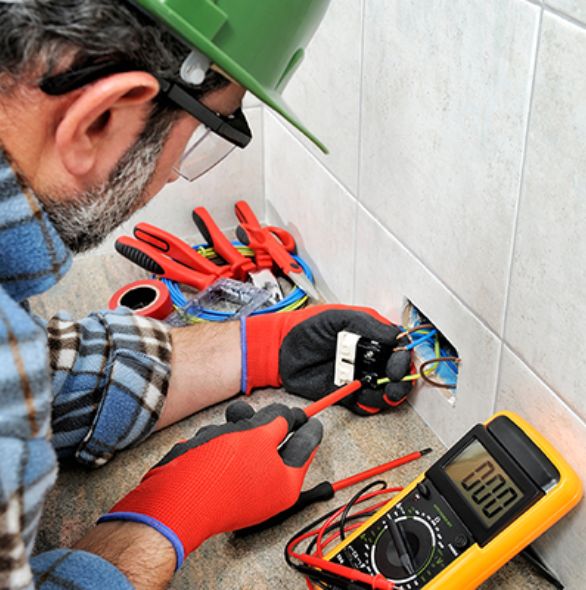
Additional Information On Electrical Safety
- Do not use damaged wires, exposed wires, extension chords and boards.
- You must insulate the joints properly.
- Use non-conductive ladders that are usually made of wood or fibreglass.
- Maintain a safe distance from power lines with a minimum of 10 feet.
- Use only standard wires, cables and appliances.
- Do not be near power lines in adverse conditions and weather.
- Shut off the main power when working on switchboards, powerpoints and plugs.
- Child-proof the electrical outlets
- Buy a fire extinguisher for your home or office
- Do not unplug electrical appliances and connections abruptly.
Conclusion
The electrical safety knowledge and carefulness can keep you and your family calm in electrical emergencies. By following the safety tips, preventive measures, swift actions and hiring emergency electricians when needed, you can ensure safety for all. You must remain safe and compliant with electrical standards to safeguard your appliances and family members. Stay informed, stay safe, and act wisely to handle electrical emergencies effectively.

